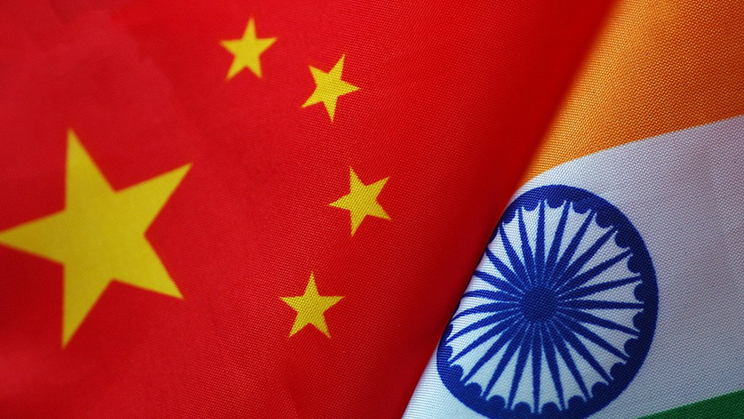
By Zhang Sheng and Long Xingchun
The Indian government and society showed strong nationalist fanaticism after the Galwan Valley incident. This nationalist fanaticism gave birth to strong anti-Chinese sentiments in India.
This time, the anti-China wave attempted to worsen an ordinary face-off in the Galwan Valley into a complete economic decoupling between China and India.
From the beginning, some Indian nationalists advocating a boycott of China-made goods, then the Indian government suddenly banned 106 Chinese Applications (APP) for unreasonable reasons of "national security", and even announced that Chinese companies were prohibited from participating in Indian road construction projects. India will also review the 275 new Chinese APP at the same time. The Ministry of Education of India also initiated a review of Confucius Institutes in Indian universities and China-India educational cooperation.
The status quo of China has a sharp contrast compared with India. Not only the Chinese government did not use any administrative measures to restrict the development of Indian companies in China, the Chinese people did not launch any high-profile "boycott India" campaigns. There is hardly any obvious anti-India sentiment in China. The reactions of China and India on this matter are so different that it is worth pondering.
China quite understands India's feelings. When the Diaoyu Islands dispute broke out about ten years ago between China and Japan, many Chinese cities also saw large-scale protests and a wave of boycotts of Japanese goods.
At that time, Japan was stronger than China, it was inevitable to feel unconfident when facing Japan, so China naturally chose to use strong means to protect the dignity of the country. Behind these methods, there is actually a tragic and victim mentality of being a weak country.
In the current international power structure, China, which was once poor and weak, has grown into a prosperous and powerful country. The Chinese people believe that their government has the capability to resist any external aggression and effectively protect national interests and the safety of its people. Therefore, China does not need to defend its national interests through grassroots campaigns such as "boycott Indian products."
It is worth emphasizing that the Chinese government showed mature strategic determination when facing the anti-Japan wave more than ten years ago. The Chinese government is keenly aware that large-scale boycotts will not only fail to achieve patriotic goals but will also harm the long-term interests of China and the Chinese people.
In the face of this series of protests, the Chinese government adopted a very rational response and has not been swayed by nationalist sentiments to stop China-Japan economic and trade negotiations.
The roots of the anti-Japan wave in China more than ten years ago and the anti-China wave in India today are the same: the feeling of inferiority caused by historical trauma and relative weakness. The anti-China sentiment is a natural response of Indian society as the weak face the strong.
Besides, the very different historical memories between China and India have caused the Chinese and Indian people to have completely different perceptual perceptions of each other: the Chinese people do not have a deep impression of the China-India war in 1962, and neither feared nor hated India. Whereas, the Indian people are still deeply trapped in the "1962 complex" and are therefore particularly sensitive to the so-called "China threat."
The undeniable fact is that under the current power contrast pattern, China has an advantage over India in economic, political and military domains. The Chinese people were not nervous when the conflict between China and India broke out because we fully believe that the Chinese government will adopt the best strategy to protect China's interests. Therefore, there is no need for people to resort to street protests or boycott imports to express their patriotic demands.
However, Indian nationalists are very aware that their country is the weaker party in the current power structure, so they are very sensitive to any form of "Chinese aggression" and are prone to take extreme actions.
From the perspective of the Chinese people, we believe that nationalism caused by historical trauma and the feeling of inferiority as a weaker party in the power structure is a normal and understandable phenomenon.
But what is really dangerous now is that, unlike the Chinese government, the Indian government is being trapped by this nationalist fanaticism, and even trying to use people's anti-China sentiment politically to gain votes for the ruling party.
This irresponsible behavior has caused the conflicts between China and India to spread from a territorial issue to the economic and cultural fields.
We should never forget that the friendship between China and India was founded on the spirit of the diplomatic principle of "seeking common ground while reserving differences" put forward by China’s first Premier Zhou Enlai. China and India have always had different positions on border issues, but economic and cultural cooperation is an important foundation that bonds the two sides.
Maintaining the common foundation of peace, stability, and prosperity between the two countries is an unshirkable responsibility of both countries. The Indian government, which is currently on the wrong path, needs to be aware of this.
(Zhang Sheng and Long Xingchun is a research fellow and president of the Chengdu Institute of World Affairs in Sichuan province, China, respectively.)
Disclaimer: This article is originally published on huanqiu.com and translated from Chinese into English and edited by the China Military Online. The information, ideas or opinions appearing in this article do not necessarily reflect the views of eng.chinamil.com.cn.













